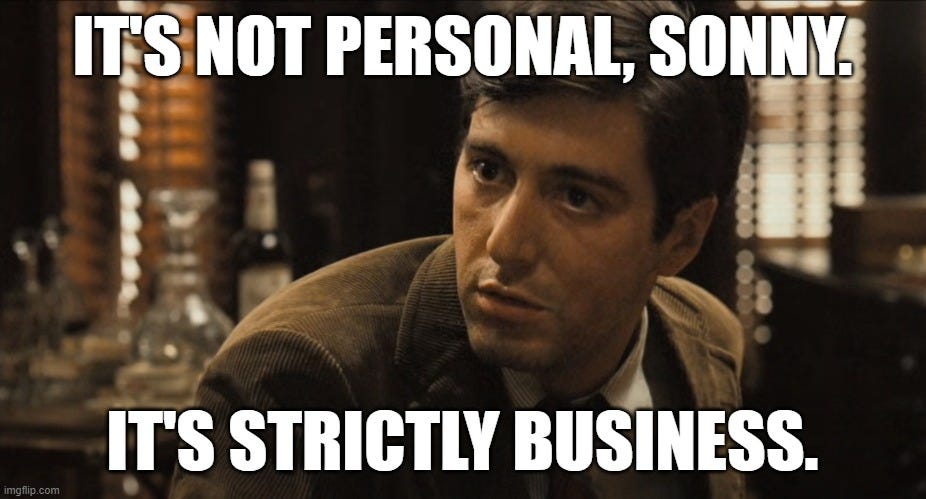Love the Game, Hate the Player
The Psychology of Competition
What do businesspeople think about their competitors? Adam Smith famously claimed that the question “How can we stop competing?” preoccupies them. In his own words:
People of the same trade seldom meet together, even for merriment and diversion, but the conversation ends in a conspiracy against the public, or in some contrivance to raise prices.
When I’ve talked off the record with businesspeople, though, they’ve told me a rather different story. When you mention their competitors, their knee-jerk reaction is: “God, I hate that guy so much. If you knew him, you’d hate him too.”
Economists might expect a more philosophical answer. Along the lines of, “Hate the game, not the player.” Yet from what I’ve seen, most businesspeople flip this adage. They love the game; that’s why they’re entrepreneurs in the first place. The thrill of the hunt, the joy of victory, and all that. But when fellow entrepreneurs get in their way, they habitually personalize the conflict. Business rivals aren’t just bad for the bottom line; they’re bad people. Dishonest, sneaky, boorish, ill-tempered, and worse. To know their competitors is to hate them; and since they are competitors, they know them all too well.
The obvious implication, pace Smith, is that collusion is overrated. If you gather a bunch of rival robots together, they’ll try to hammer out a collusive arrangement. But if you gather a bunch of rival humans together, they’re more likely to fight about the past, present, and future of their industry. Maybe they’ll subtly snub each other, and walk away with bitter tastes in their mouths. Maybe they’ll trash talk. Maybe they’ll end up in a shouting match. All of which lays the foundation for continued competition. Maybe even a full-blown price war.
Aren’t businesspeople shrewd enough to put their personal feelings aside? Relative to normal people, probably. But shrewd humans are still humans - and humans are an emotional species. Visualize, moreover, what happens if four out of five businesspeople want to collude, but the fifth itches for a battle royale. You don’t get 20% of a battle royale; you get 50%, or 75%, or 90% of a battle royale. Even when economic conditions are ideal for collusion, you get competition unless all of an industry’s leaders keep their pugilistic emotions in check.
Overall, this is good news for market performance: We should expect to see more competitive outcomes than simple economic theory predicts. But what about network industries - like phone service, athletics, banking, and anarcho-capitalist defense firms - where competitors must cooperate to deliver high-quality products? Perhaps the psycho-logic of competition makes network industries function less smoothly than economic logic predicts.
Another possibility, though, is that hating your competitors is context-specific. Most psychological reactions are, after all. Perhaps the very fact businesspeople in network industries need to work together to do their jobs fosters mutual good will. Somewhere in between, “We’re all on the same team” and “Destroy the enemy.”
Questions: Based on your first-hand experience, how do businesspeople actually feel about their competitors? Does it vary by industry type? Or what?



I worked for a large technology company in northern California. Most people worked for a competitor in the past. Most people plan to work for a competitor in the future. People generally tried to change jobs every two years. That dulls any desire to trash talk competitors.
If you say anything bad about a company, it might hurt you when you interview at that company in a year or two. Even if you genuinely dislike a company, you will interview there to get an offer. Competitive offers can double the value of your stock grant.
I expect that an us-vs-them mentality was easier to have when people tended to work at companies for a decade at a time.
In my experience the senior people in a firm often dislike their counterparts at competitors, precisely in the personal way you describe. Any lost sale is ascribed to backroom deals, palm-greasing, and unethical actions, even when there is no evidence of wrongdoing, rather than accepting that one's own product was a worse fit or that the customer contact was mishandled. The strongest leaders are able to ignore this tendency and make objective appraisals so that their companies can keep improving based on market feedback.